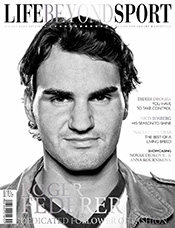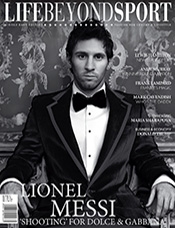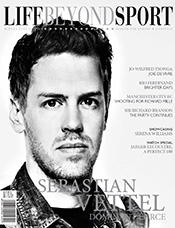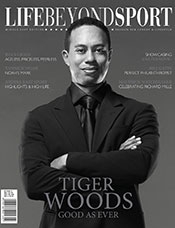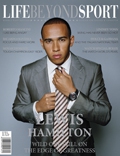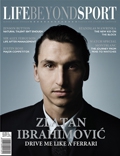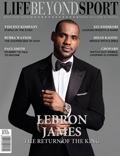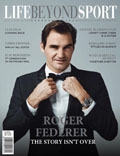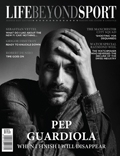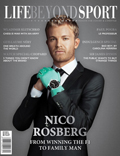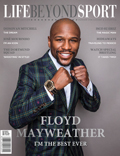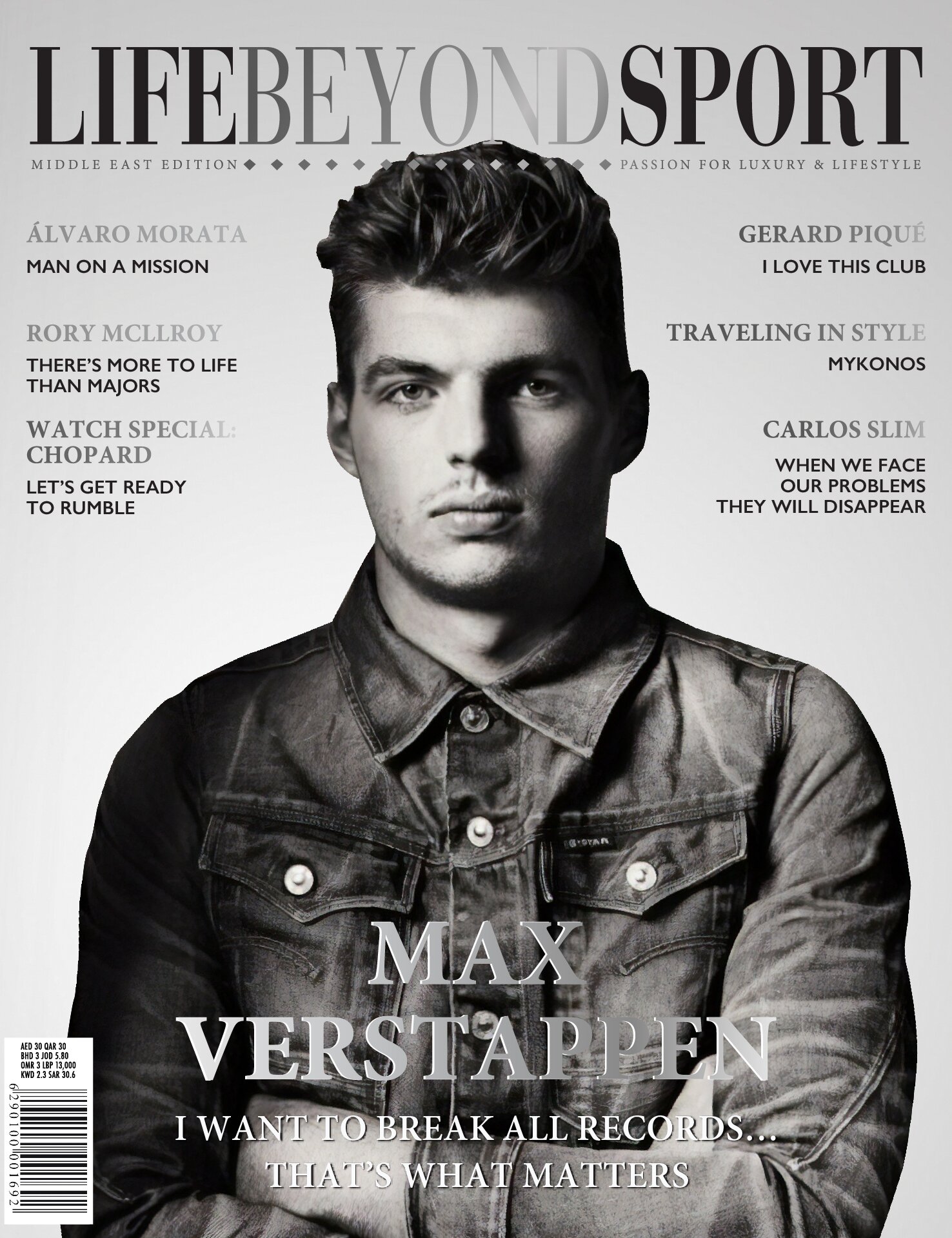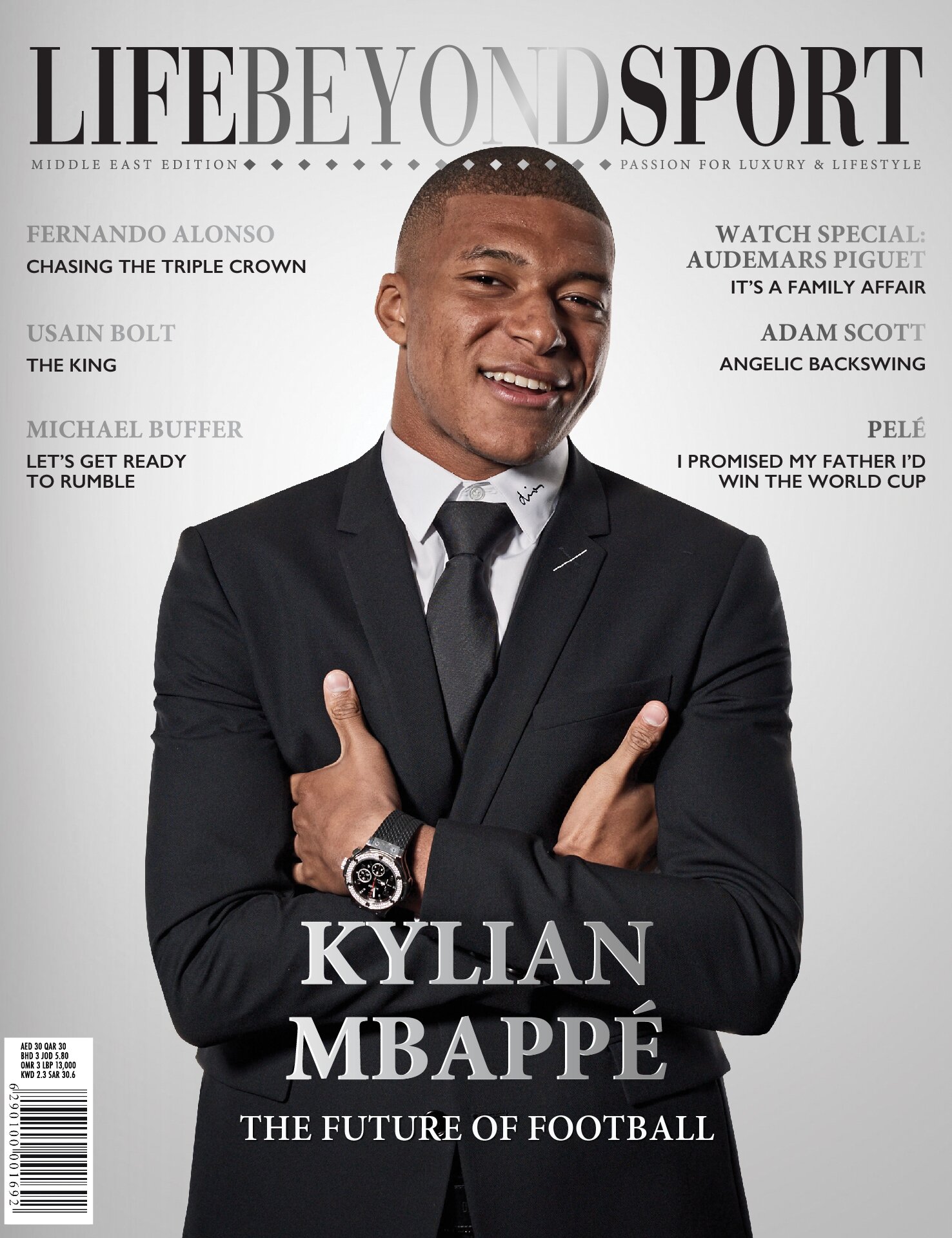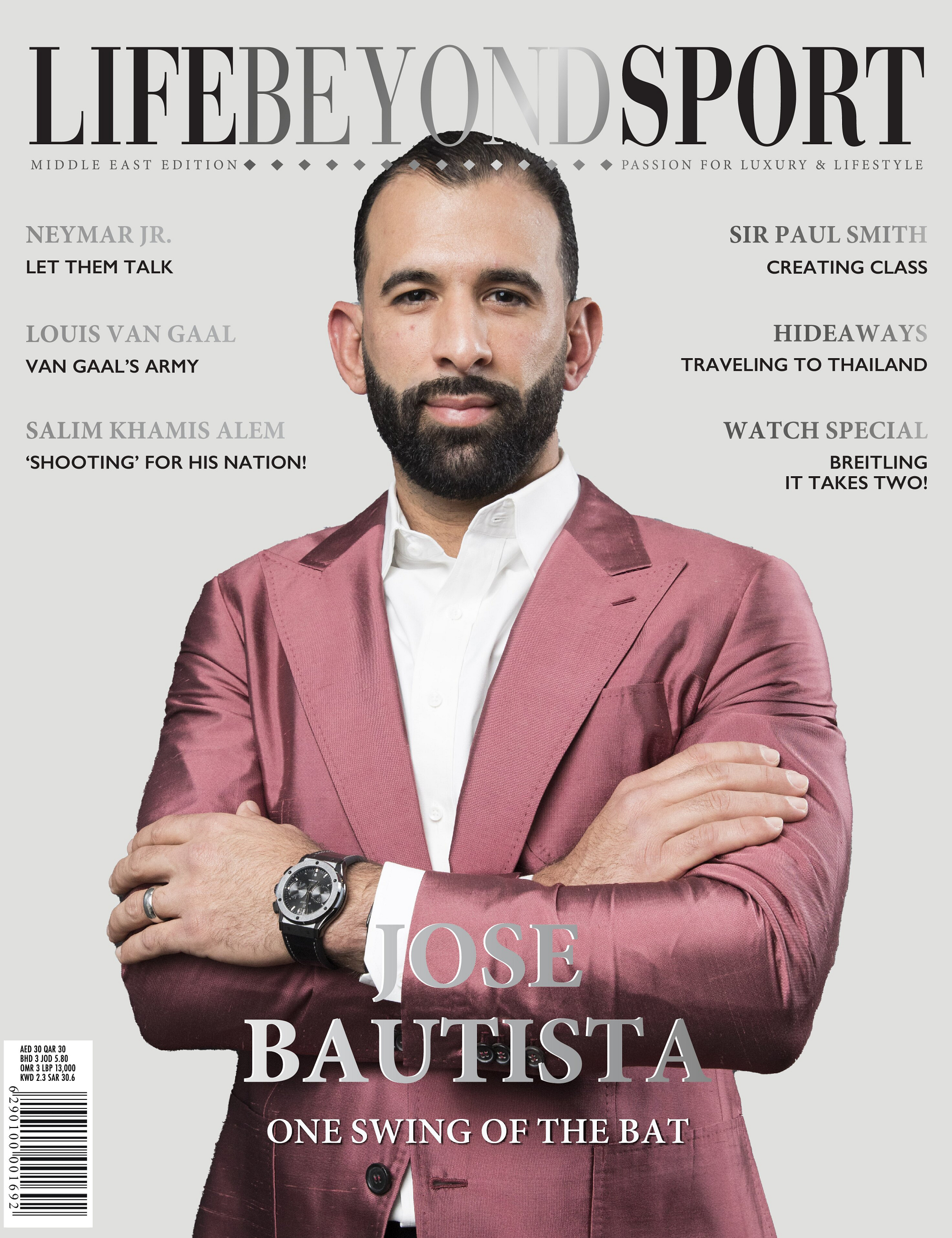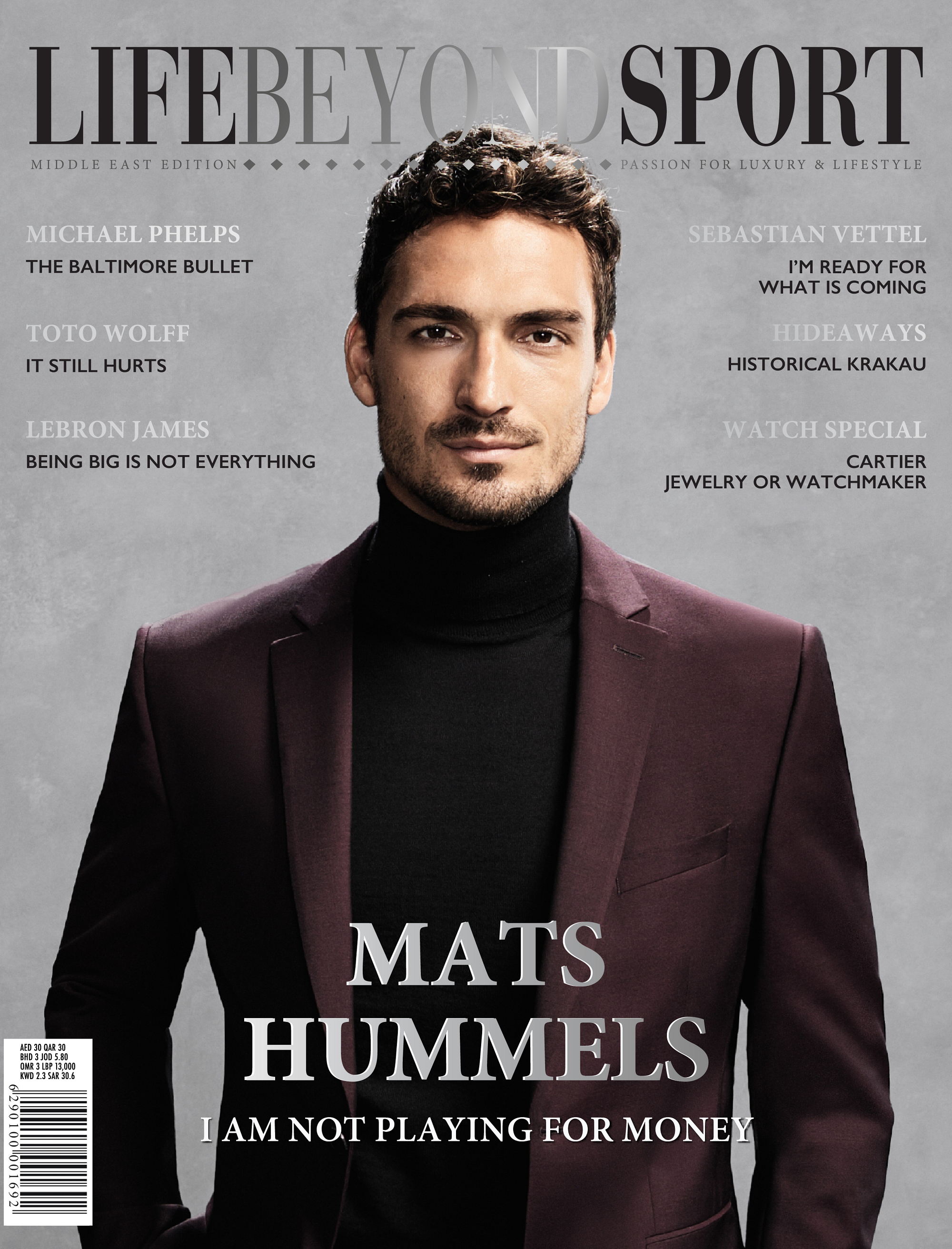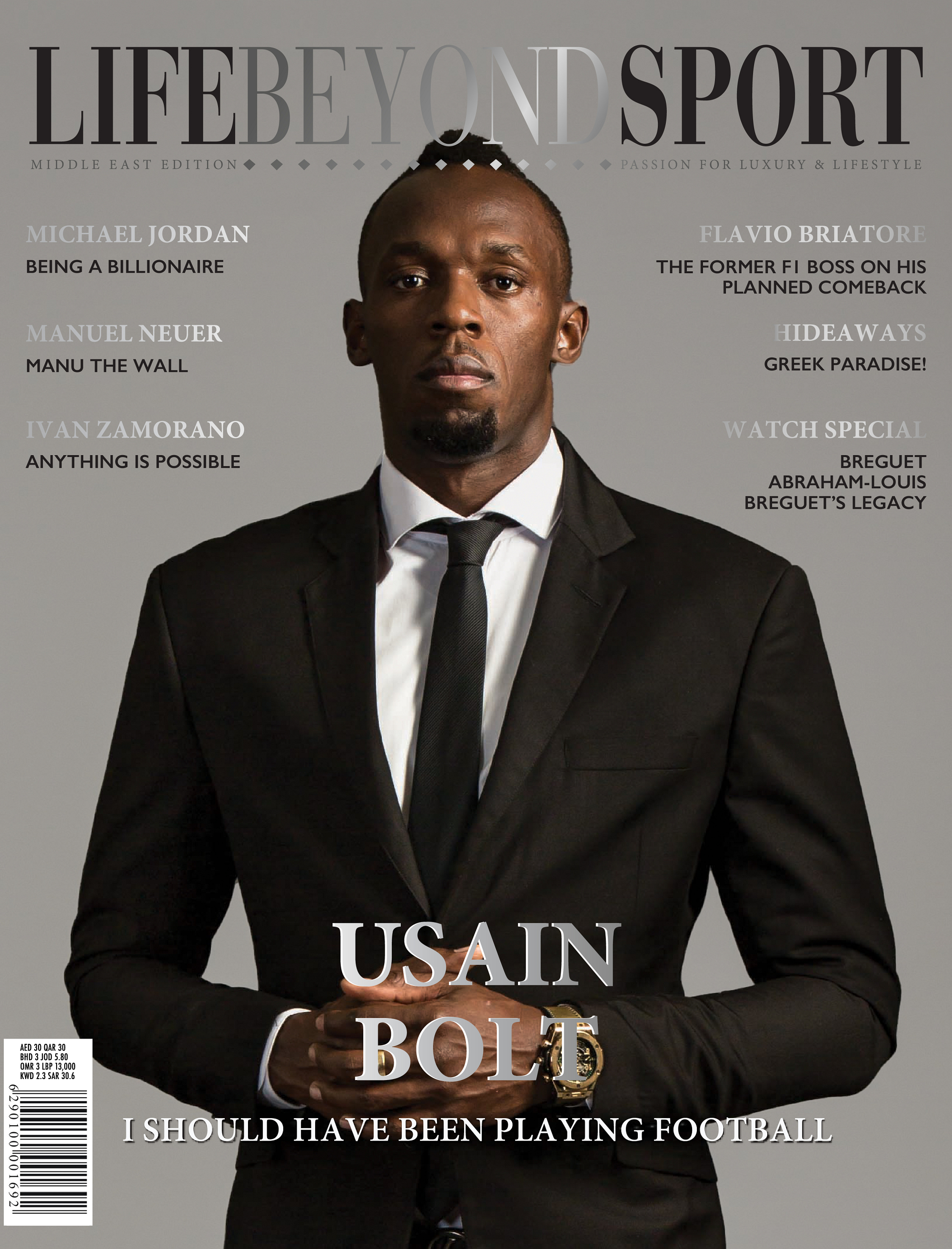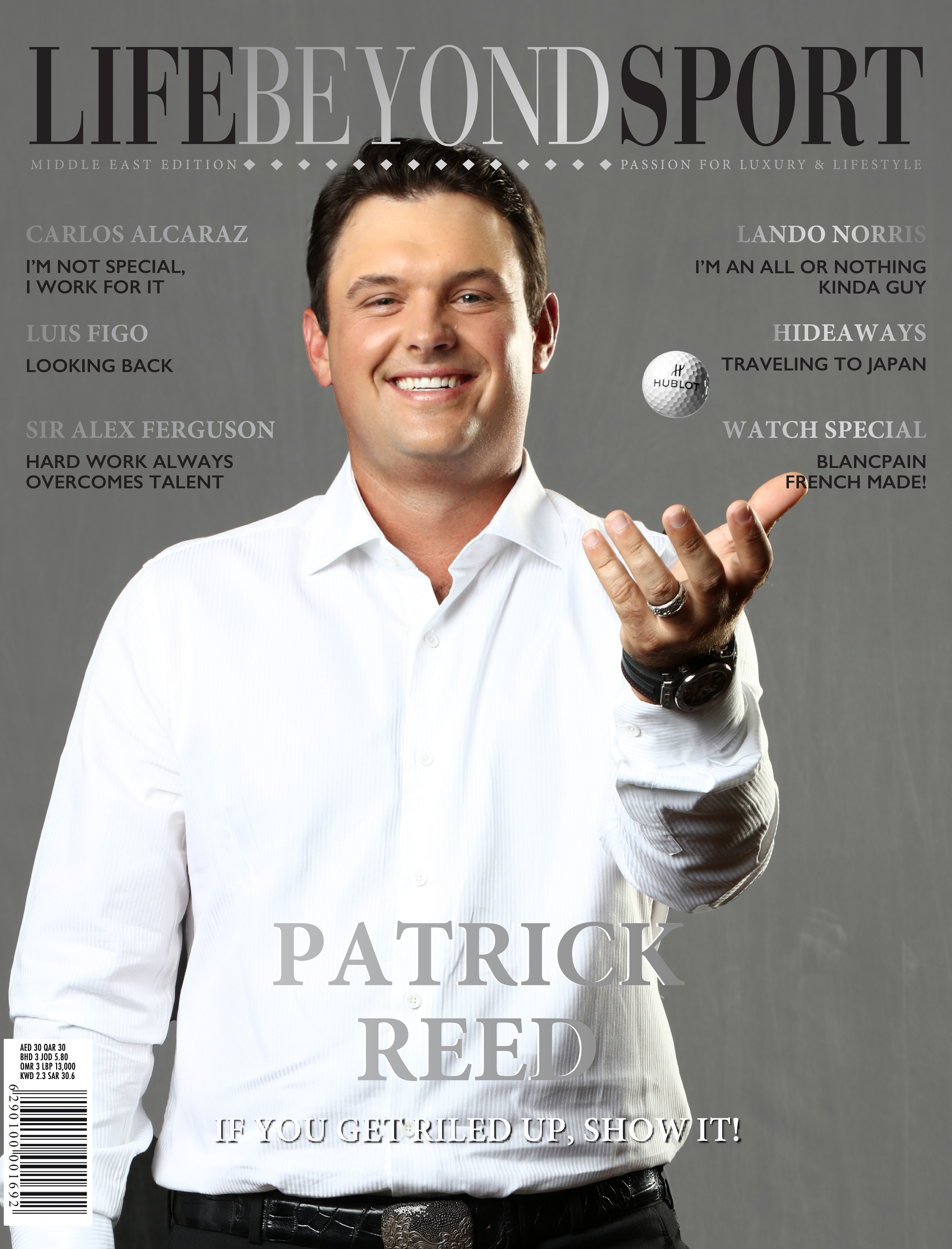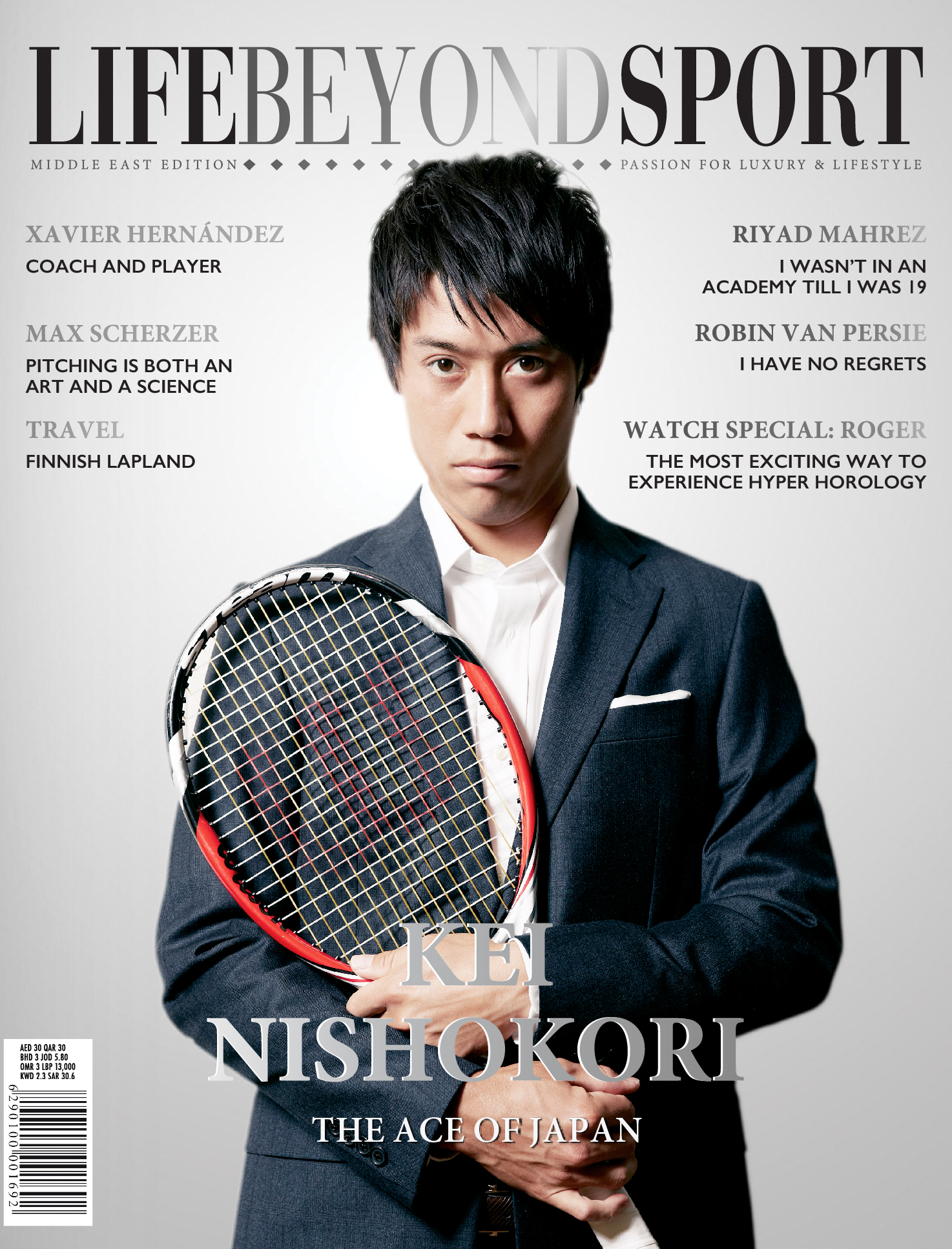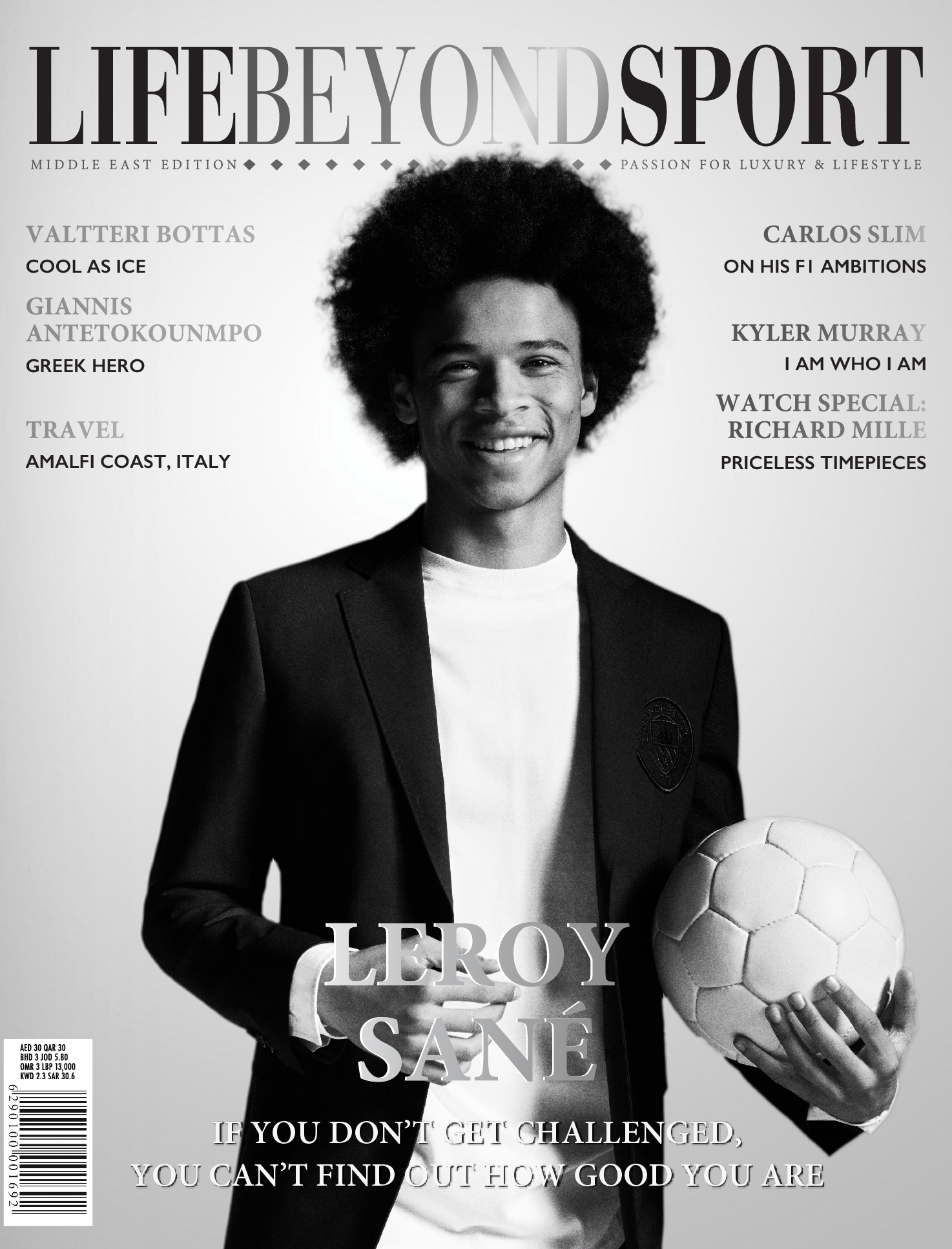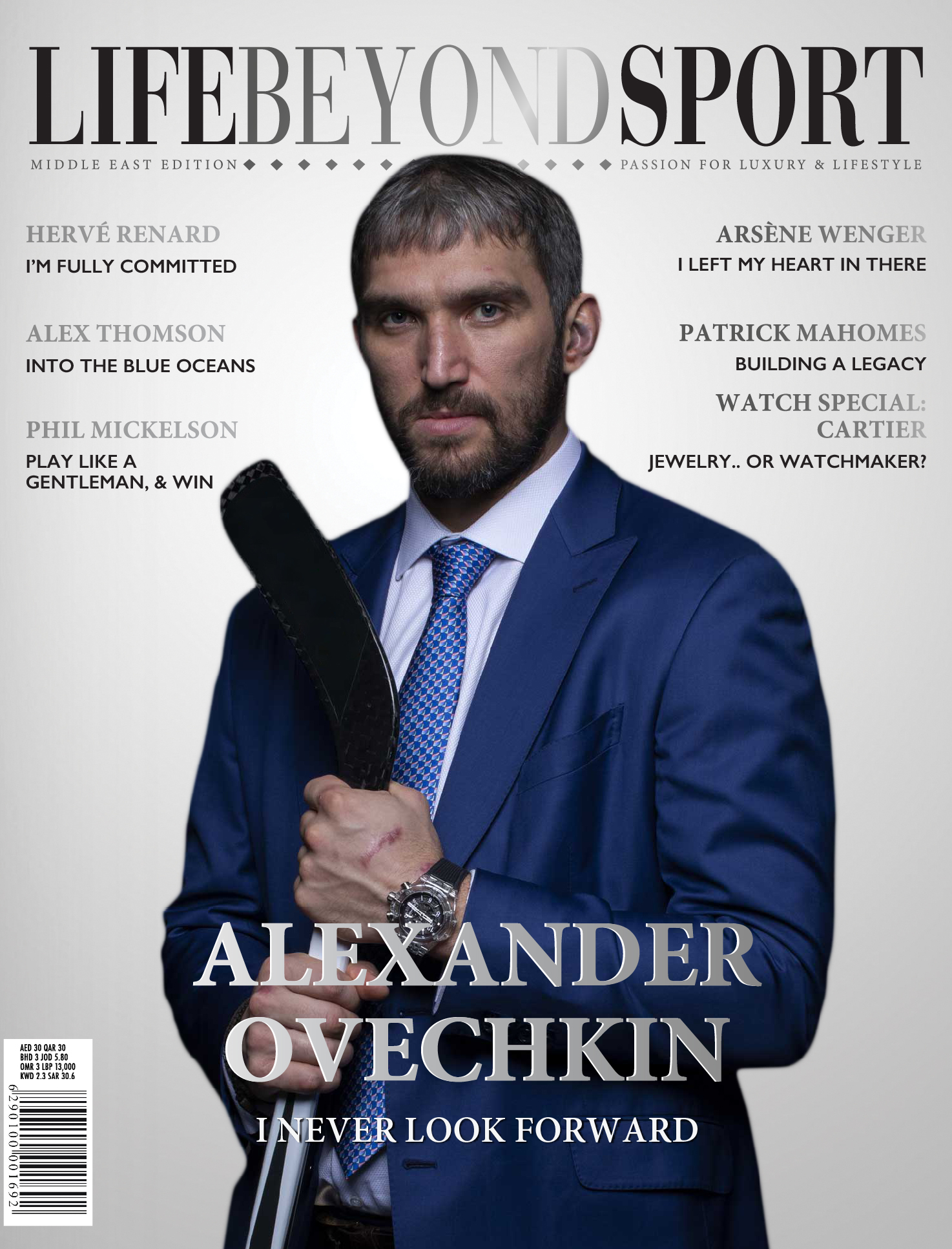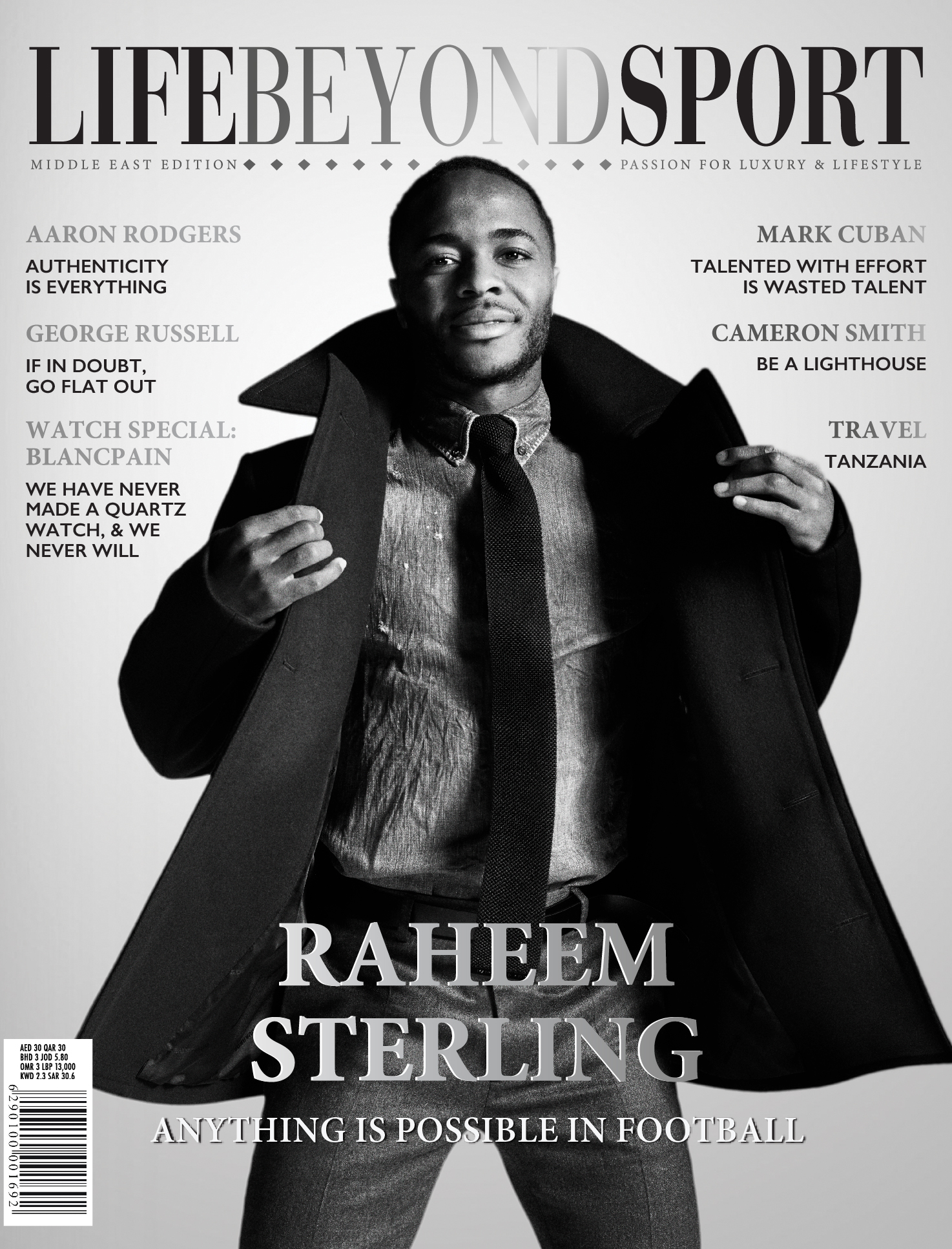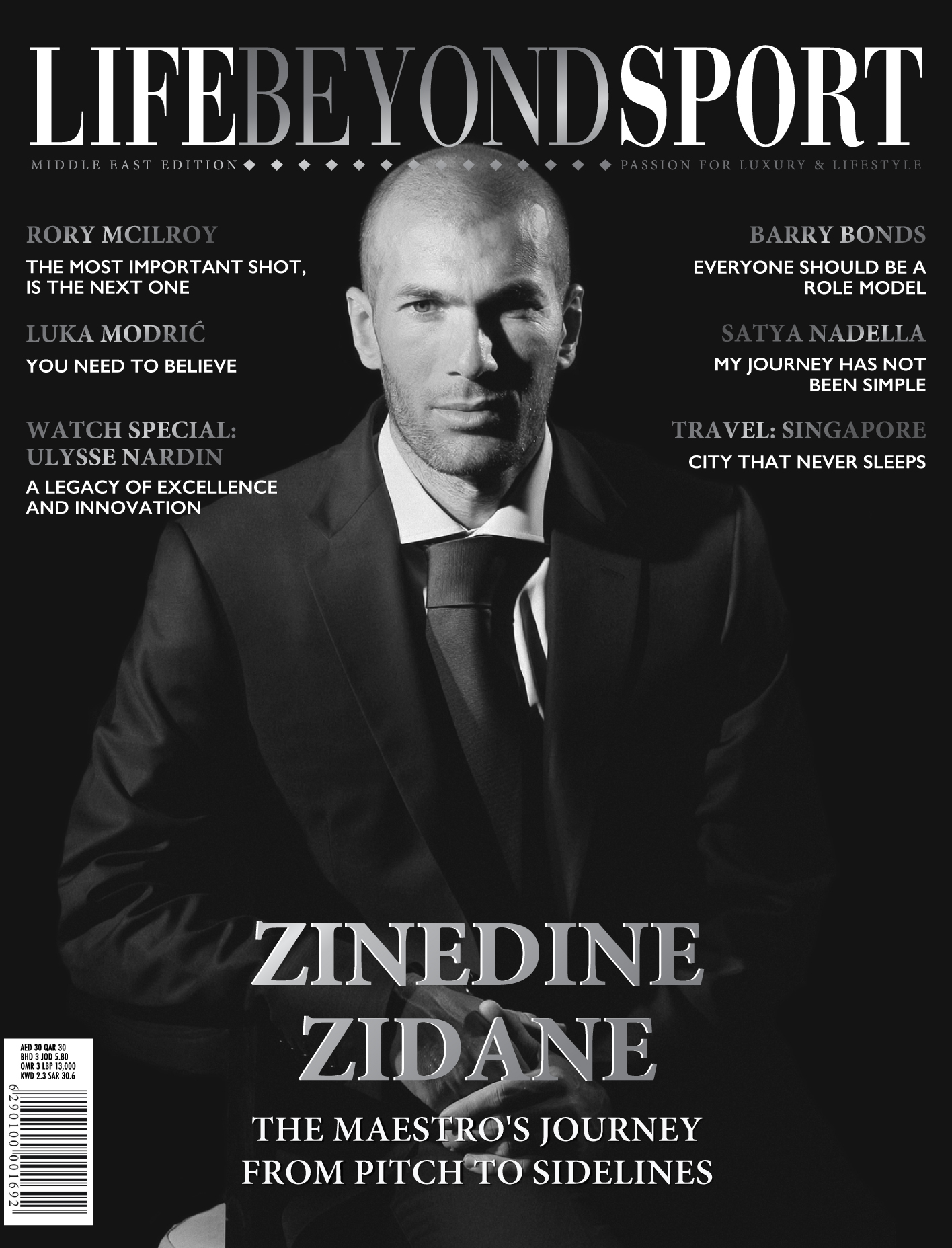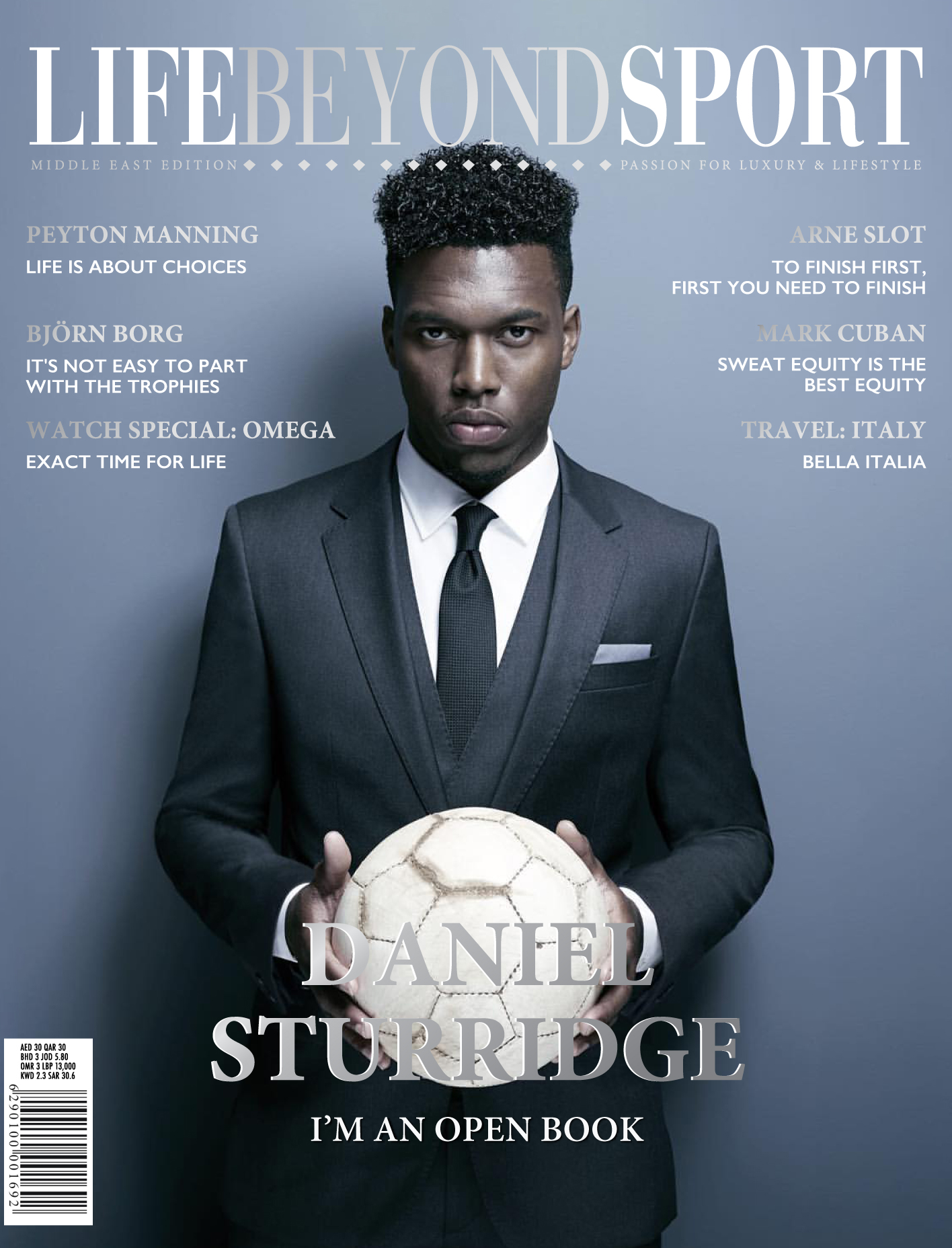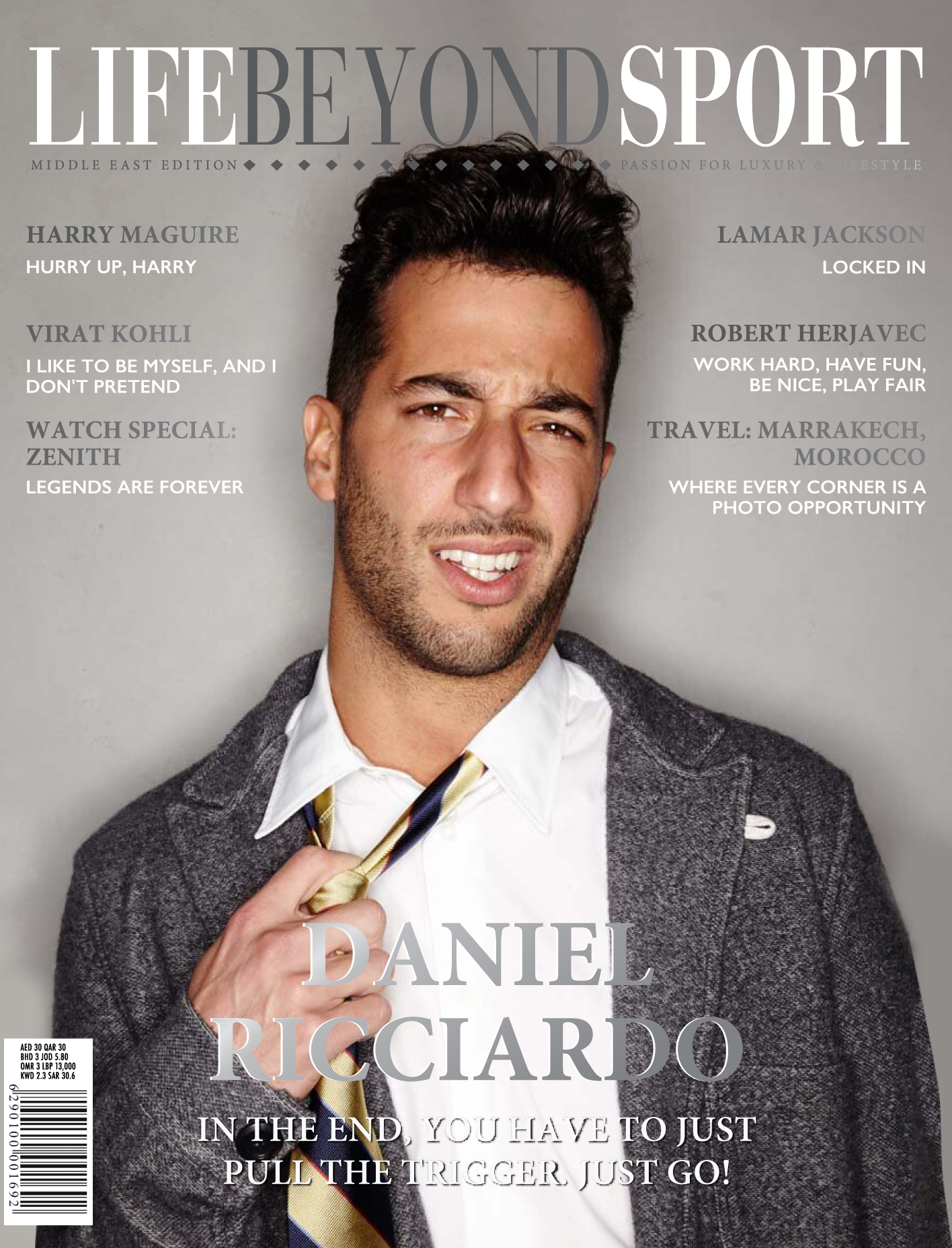In our exclusive interview, the pound-for-pound king delivers 5 knock-out pieces of advice and tells us how he became ‘The Best Ever’
When asked—and often unprompted—the 42-year-old Mayweather will offer that he is the best boxer ever. But while the accuracy of that self-assessment is the subject of much debate, it’s hard to argue with the numbers: Since turning pro in 1996, Mayweather has won 50 matches—27 of them via knockout—and lost none.. In the ring, he was more of a smooth-operating tactician than a Tyson-esque weapon of mass destruction. His style is defensive, but his reflexes are quick, and his rare yet seemingly basic ability to hit other men in the face while somehow managing to protect his own—his mug is still remarkably devoid of scars—earned him the nickname Pretty Boy as an amateur. Another nickname that Mayweather has earned is Money, and that one, too, is well deserved—as much for the fact that he is the highest-paid fighter in boxing today as for his affinity for walking into battle dressed in ostrich-skin trunks and chinchilla robes.
Growing up in Grand Rapids, Michigan, Mayweather was introduced to boxing at an early age. His father, Floyd Mayweather Sr.—once a welterweight fighter—started training Floyd Jr. when he was just 5 years old. However, his tutelage of Floyd Jr. was derailed when the elder Mayweather was sentenced to five years in prison in 1994 on a drug-trafficking conviction. But the relationship between Floyd Jr. and Floyd Sr. remains a complicated one, filled with periods of estrangement and reconciliation. But Floyd Jr. has said that his father pushed him too hard when he was a kid.
By the numbers, Mayweather may very well be the best that boxing has ever seen. But the more looming issue for him is quickly becoming one of history. The most important fighters of all time—the ones who changed the sport—were always about more than wins and losses. They were galvanizing forces, polarizing personalities, rogues, radicals, misfits, and dissidents—and, in the case of Ali, all of the above at the same time. They weren’t just boxers—they were fighters in every sense of the word. Despite his perfect record, Mayweather’s critics have argued that he went to great lengths to protect it, going long stretches between bouts and carefullychoosing his opponents.
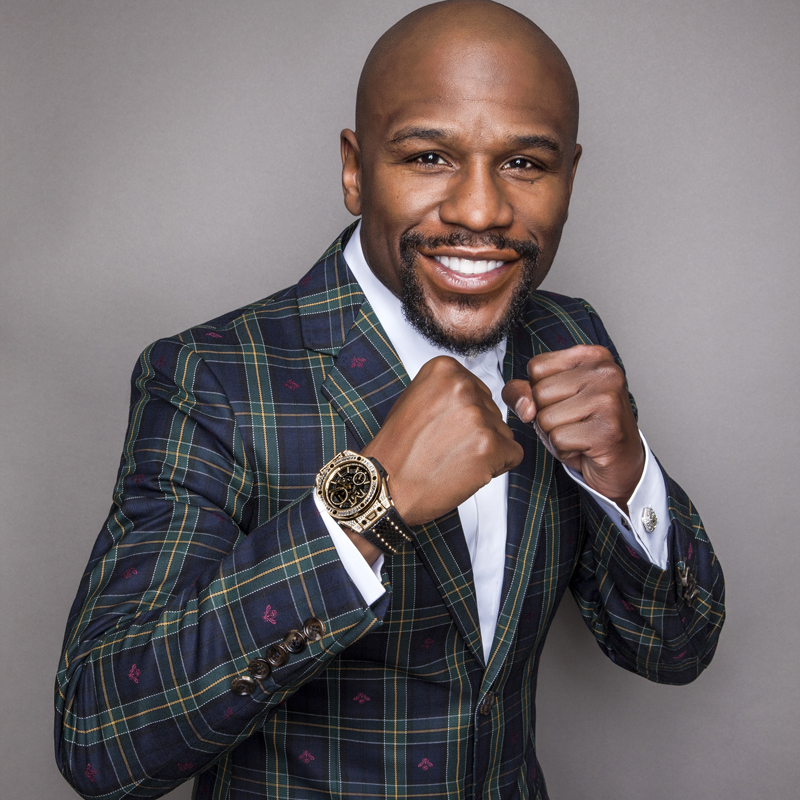
You can talk about other fighters all you want. But I’ve never been beat before. So all roads lead to Floyd Mayweather. The big question for everyone is, How can we beat this guy? Floyd Mayweather Jr.
AMES: What drived you the most in your boxing career? Is it money? Is it the glory?
MAYWEATHER: I mean, it’s everything all wrapped into one, you know? I think I already proved that I wasn’t just fighting for the money, because I fought as an amateur. I fought 90 fights for free. But then, once you get to this stage of your career, everything becomes a part of your legacy. Of course, you want to be the best fighter to ever live. Not to knock no other champions, but I think everybody is put in a certain position for a reason. Muhammad Ali called himself the greatest, and after a while, he was the greatest. I say I’m the best ever, and so as long as I keep saying that . . . I think that, with the boxers that fought in my era, they’ll say, “He was the best ever,” but it’s all with respect to the legendary champions that came before. I mean, I didn’t fight in Muhammad Ali’s era, or Sugar Ray Robinson’s, or Sugar Ray Leonard’s, or fight the fighters that they fought in those times. But, you know, in their careers they did a hell of a job, and in my career I think I did a hell of a job.
AMES: Well, by saying, “I’m the greatest ever,” what’s cool is that it sounds like—
MAYWEATHER: No, no, no. I’m saying I’m the best ever. Ali said he was the greatest of all time, but I say I’m the best ever. You know, everybody has a slogan, and once you beat people over the head with it so much, then that’s what you’ll eventually be called once you retire from the sport or whatever. But the only way that you can make a statement like that true—the only way that it is true—is if you’re doing what you say you’re doing. You get a lot of fighters that talk a lot of trash, but they can’t back it up. I’ve backed up what I’ve said thus far, and I am in a position now to say that I am one of the best—if not the best. A lot of times, in the beginning of my career, I put pressure on myself just because I wanted to perform so well. I just wanted to be perfect.
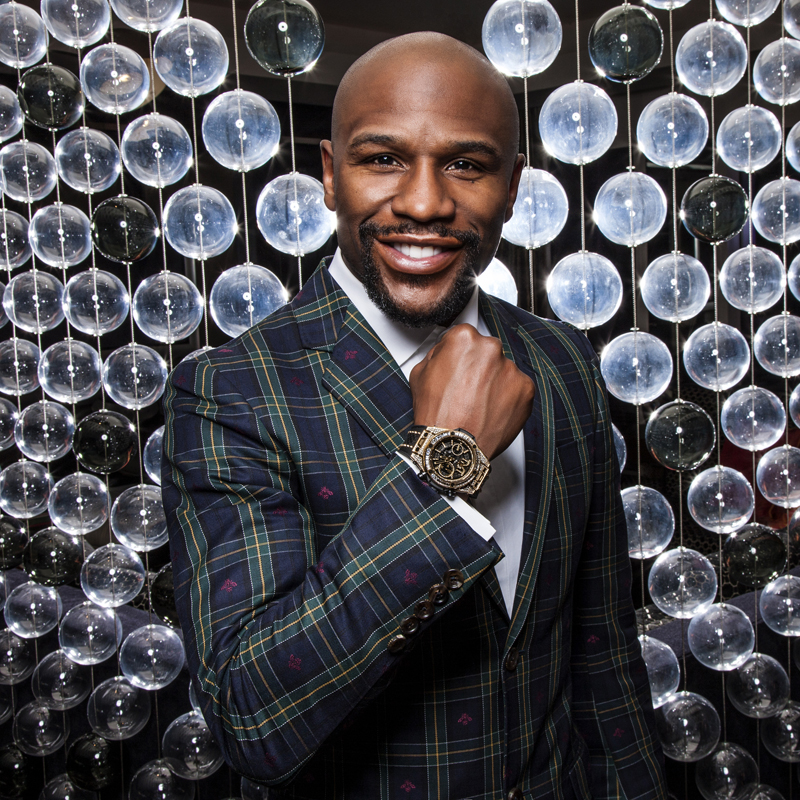
AMES: I saw some quote from you, and I don’t mean to touch on this, but—
MAYWEATHER: Well, if you don’t mean to do it, then don’t do it!
AMES: No, well, it’s an emotional—
MAYWEATHER: People always say, “I don’t mean to do this . . . ,” and then they do it! If you don’t mean to touch on it, then don’t touch on it. That’s how I feel.
AMES: Yes, I see your point, but I did see a quote where you said that when you first started boxing, part of your problem with your father was that he expected you to be perfect. Do you think that’s where some of your own perfectionism comes from?
MAYWEATHER: You know, you say certain comments in the past, and as you get older, you may not have those same feelings. When I was younger, my dad did want me to be perfect, so that’s probably why that’s installed in me to this day. I want to be perfect at whatever I do. I can’t help it. It’s just installed in me.
AMES: But now, even though you still aim to be as close to perfect as you can be in the ring, you don’t beat yourself up as much about it?
MAYWEATHER: Well, my mother and certain other people in my life—a lot of important people—have said, “Floyd, nobody is perfect except for god.” And I always knew that; I just wanted my victories to be flawless. I didn’t want to get hit at all. I wasn’t gonna make any mistakes. And that’s the problem with me growing up and being around a trainer that wants his fighter to be perfect.
Mike Tyson was one of the fighters who motivated me. I used to see his Rolls-Royce, his diamond Rolex on, and I said, ‘You know what? Those are the things that I want.
AMES: You started fighting at a young age. Growing up in a boxing family, do you ever feel like you missed out on a different kind of childhood?
MAYWEATHER: Well, my life is kind of like Michael Jackson’s, you know? Or similar in some ways: I just think that some people are more strong-minded than others. But every day as a kid, I went to the boxing gym. I knew boxing before I knew anything else. And I was once told if you show your child how to do something and you constantly push them, then eventually they’ll become masters. They’ll become a master of their craft. So that’s probably what happened with me and the sport of boxing.
AMES: Do you push your own kids in that way?
MAYWEATHER: [sighs] No. I’m letting my kids find their own way. My older son loves boxing. I think my younger son likes wrestling.
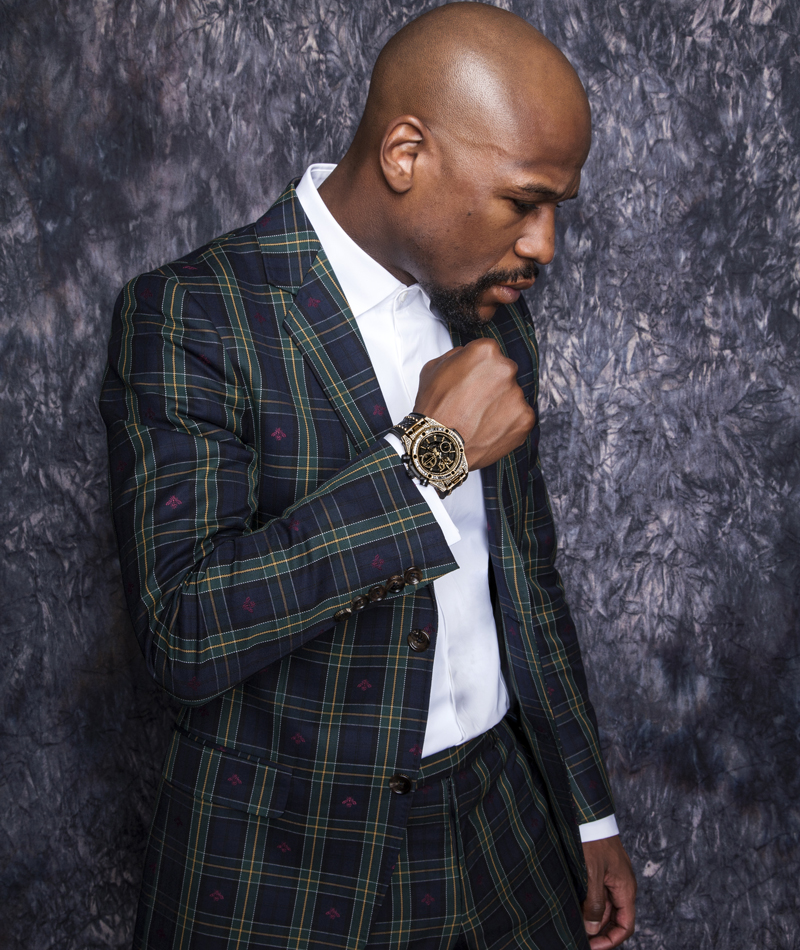
AMES: How would you feel if your older son went into boxing? Would it be tough for you to watch him fight?
MAYWEATHER: Well, I only want the best for him. Boxing is, of course, in my whole family, so sometimes I’ll work with him or my dad will work with him or my uncle Roger [Mayweather] will work with him. But the main thing is that I’m not trying to put pressure on him. I think my dad, when he works with my older son, puts the same kind of pressure on him that he put on me—that perfectionist pressure. And that can work in two ways: It can make you a perfectionist yourself, or it can eventually break you in the long run.
AMES: Do you go to church?
MAYWEATHER: No. I go but not a lot. A lot of the time when I go to church, people want to take pictures. They want you to sign autographs. So I don’t go all the time. I go once in a blue moon. Every once in a blue moon.
AMES: So spirituality is more of a private thing for you?
MAYWEATHER: Yeah, my spirituality is more private. My mother always said, “You don’t have to go to church all the time to have a relationship with god.” So I’ve got my own personal relationship with god. I know that there’s a god because I was able to survive everything that I’ve been through—all of the tough times. With all the rumors and all the hate, I’m still strong, still happy, still blessed.
AMES: What’s your opinion of Mike Tyson?
MAYWEATHER: He did it his way. Mike Tyson was one of the fighters who motivated me. How? We both used to train at the Golden Gloves boxing gym. I used to see his Rolls-Royce, his diamond Rolex on, and I said, “You know what? Those are the things that I want.”
AMES: Are you friends with him?
MAYWEATHER: Me and Mike hang out. A little while back, we weren’t seeing eye to eye. But me and him talked, and I just told him that I don’t have no problem with him. He said, “Floyd, you’re a hell of a fighter, man. You’re one of the best fighters I’ve ever seen.” And you know, that meant a lot to me.
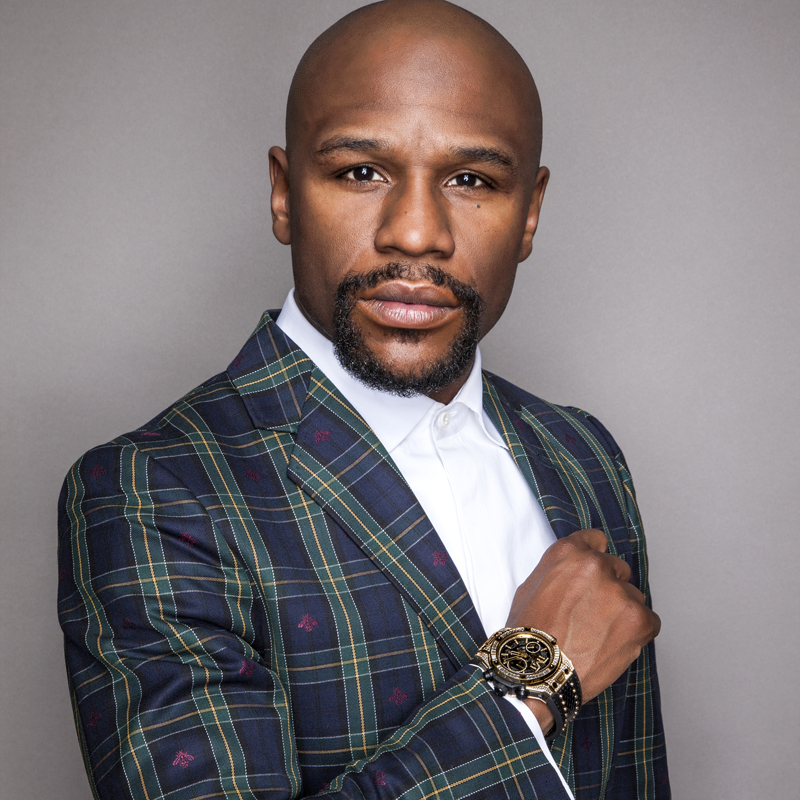
AMES: What do you think, overall, of his career and everything that’s happened to him?
MAYWEATHER: I’m not here to judge Mike Tyson. I’m not here to judge nobody. I’m not here to monitor no other fighters. I respect him for what he did in the sport of boxing. He was an entertainer.
AMES: So, what do you do for fun?
MAYWEATHER: I spend time with my kids. We go skating or bowling or to the movies. We ride roller coasters at theme parks, go to the beach, travel, go on Jet Skis. Everything.
AMES: So you’re very physically active. You’re not out partying or living that kind of lifestyle.
MAYWEATHER: I mean, I like to party, too. I love to party. But I don’t drink or smoke—you know, to each his own, but I don’t do that.
AMES: Do you have a steady woman in your life right now?
MAYWEATHER: I don’t talk about my personal life—or what I do with no females. Just know that I love women. A lot.
AMES: All right, well, thank you very much for taking the time, Floyd.
MAYWEATHER: Anytime. I appreciate the interview, man. Thank you.
AMES: Okay, and I—
MAYWEATHER: And I don’t think your voice sounds boring. Actually, I think your voice is cool.
AMES: Well, thank you. I’m looking forward to hearing about the new things in your life now your career has ended.
MAYWEATHER: All right, man. I appreciate you, and I appreciate this. Now I’m going to support you and follow you.
.jpg) Life Beyond Sport magazine is a pioneering publication that breaks through the traditional barriers of men’s lifestyle magazines by smoothly combining a man’s love of sport with his passion for the finer things in life. The magazine contains a range of features, interviews and photo-shoots that provide an exclusive insight into the sportsman’s lifestyle. Only in Life Beyond Sport will you find the biggest names from the worlds of Football, Tennis, Formula 1, Golf, Polo and more.
Life Beyond Sport magazine is a pioneering publication that breaks through the traditional barriers of men’s lifestyle magazines by smoothly combining a man’s love of sport with his passion for the finer things in life. The magazine contains a range of features, interviews and photo-shoots that provide an exclusive insight into the sportsman’s lifestyle. Only in Life Beyond Sport will you find the biggest names from the worlds of Football, Tennis, Formula 1, Golf, Polo and more.